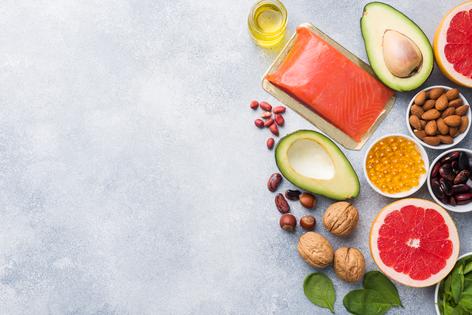What you need to know about antioxidants
Published in Health & Fitness
Antioxidants are a nutrition topic that’s had staying power for decades as other nutrition trends come and go. Why? Because although antioxidants can be overhyped at times, there is actual substance behind the hype.
Antioxidant activities
Antioxidants neutralize free radicals — substances that occur naturally in the body but can damage cells and DNA.
“Antioxidants are simply compounds that protect cells against oxidation — or the effects of free radicals — and they’re found all around us, in many types of foods and drinks,” says Seattle-based registered dietitian nutritionist, Ginger Hultin, MS, RDN, owner of Champagne Nutrition and author of “Anti-Inflammatory Diet Meal Prep” and “How to Eat to Beat Disease Cookbook.”
Hultin points out that the body is in constant flux and needs antioxidants to help naturally quench the oxidation that occurs by simply living — breathing, metabolizing, detoxing. “These processes create natural free radical damage, and the balance is that we get antioxidants from the foods we eat,” she says.
Our bodies do a pretty good job of keeping free radicals in check by producing their own antioxidants — but poor diet and exposure to cigarette smoke, pollution, radiation, and environmental toxins can produce more free radicals than your body can handle. The resulting oxidation can accelerate aging and increase the risk of heart disease, Type 2 diabetes, Alzheimer’s disease, Parkinson’s disease and cancer.
Counterintuitively, antioxidants in excess can also be oxidant, and oxidation isn’t always bad, says Michelle Averill, Ph.D., RDN, an associate professor of occupational and health sciences at the University of Washington. “It’s all a system, and we need oxidants and antioxidants in balance,” she says. “When our body increases oxidants, it’s not always negative, sometimes oxidants are a response to something happening in our system and it tells our body to do something.”
How to find antioxidants
We sometimes refer to certain nutrients and phytochemicals as antioxidants, but it’s more accurate to say that they have antioxidant properties. For example, vitamin C plays a role in the production of collagen, neurotransmitters, and certain amino acids in the body — and it also functions as an important antioxidant.
“Vitamins and minerals contain antioxidants — including beta-carotene and vitamins C and E — but there are actually thousands of antioxidant compounds,” Averill says. “For example, all the types of polyphenols in tea, coffee, berries, or chocolate. They’ve got flavanols, proanthocyanidins, and anthocyanins among many others.”
...continued







Comments